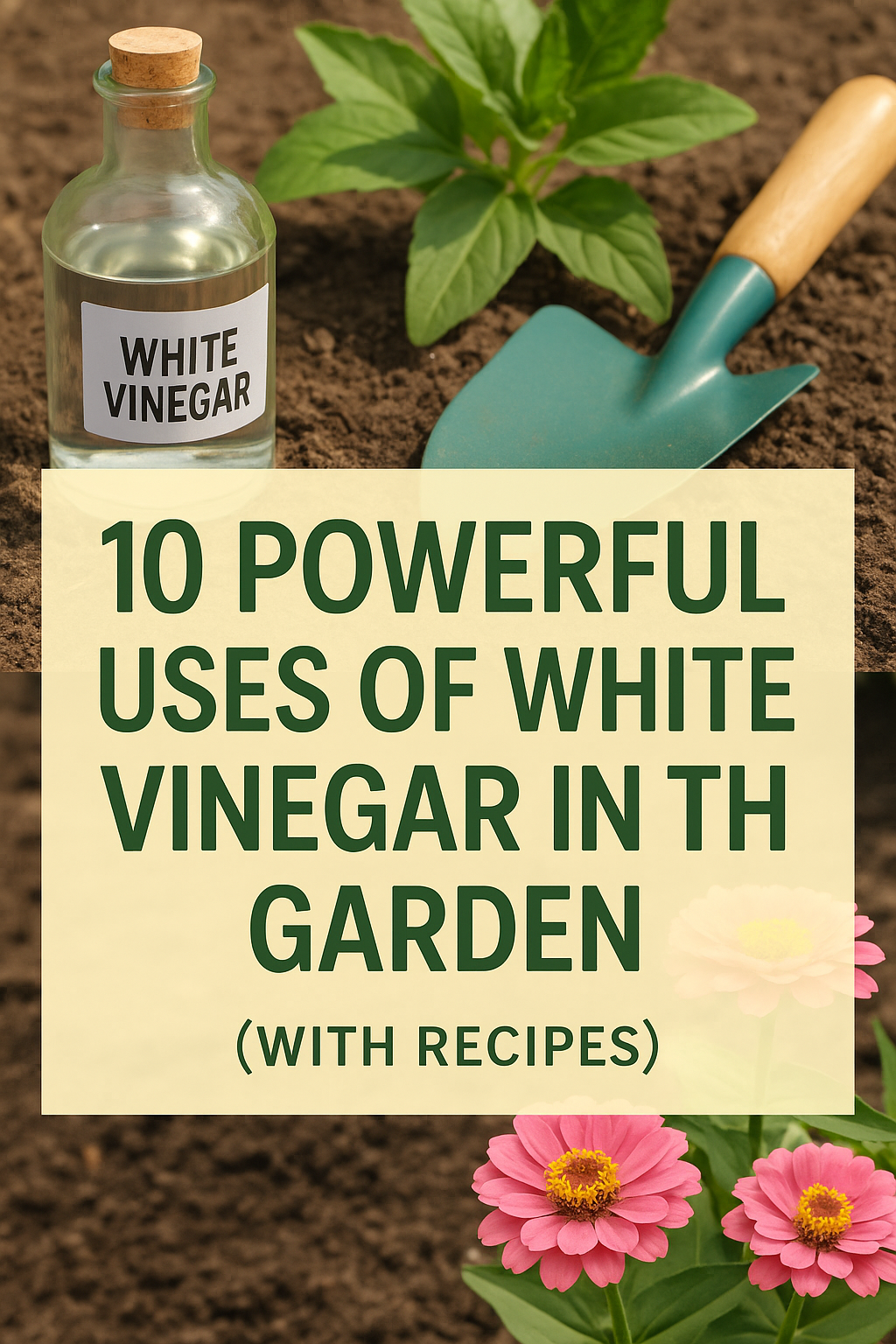
White vinegar is more than just a kitchen staple. In fact, it’s one of the most underrated tools for natural gardening. If you’re trying to avoid harmful chemicals in your garden, vinegar offers a simple, affordable, and eco-friendly solution.
Why Use White Vinegar in the Garden?
Vinegar is made from acetic acid, which acts as a natural herbicide and cleaning agent. It can help you control weeds, repel pests, disinfect tools, and even support certain plant types. Best of all, it’s inexpensive and non-toxic when used properly.
1. Kill Weeds Naturally
White vinegar is one of the most popular homemade weed killers. It works by drying out the foliage of unwanted plants, especially on sunny days.
DIY Vinegar Weed Killer Recipe:
- 1 gallon of white vinegar
- 1 cup of salt or Epsom salt
- 1 tablespoon of dish soap
Mix all ingredients in a spray bottle and apply directly to the leaves of weeds on a hot, sunny day. Be careful not to spray nearby plants you want to keep.
2. Keep Cut Flowers Fresh
Add vinegar to your flower vase to prevent bacterial growth and extend the life of your bouquet.
Flower Preservative Recipe:
- 1 quart water
- 2 tablespoons white vinegar
- 1 teaspoon sugar
Stir well and use as flower water. Replace every 2–3 days.
3. Feed Acid-Loving Plants
Plants like azaleas, gardenias, rhododendrons, and hydrangeas love slightly acidic soil. Vinegar can help temporarily lower soil pH.
Mix 1 cup of vinegar with 1 gallon of water and use it to water acid-loving plants once every few weeks.
4. Deter Ants and Pests
Ants dislike vinegar. You can use it to repel ants from garden beds, patios, and even your home perimeter.
Mix equal parts white vinegar and water, and spray areas where ants are active. Reapply every few days as needed.
5. Eliminate Slugs and Snails
Slugs and snails can damage leafy greens and flowers. Spray them directly with undiluted vinegar — they won’t return.
6. Remove Fruit Flies
Use vinegar to trap fruit flies near fruit trees or compost bins.
Trap Recipe:
- ½ cup apple cider vinegar
- 1 tablespoon molasses
- ¼ cup sugar
- 1 cup water
Pour into a container and hang it in your garden. Flies are attracted and trapped inside.
7. Clean Your Garden Tools
Soak rusted or dirty tools in undiluted vinegar overnight. It breaks down grime and rust without harsh chemicals. Rinse and dry thoroughly after soaking.
8. Neutralize Garden Allergens on Hands
After gardening, wash your hands with diluted white vinegar to remove pollen, plant oils, and allergens that might cause itching or irritation.
9. Clean Birdbaths and Garden Decor
Mix equal parts water and vinegar to scrub birdbaths, pots, and garden statues. Rinse thoroughly with clean water before use.
10. Keep Cats Out of Garden Beds
If neighborhood cats are using your garden as a litter box, pour diluted vinegar around the edges of the beds. Cats dislike the smell and will avoid the area.
Final Tips & Warnings
- Never use vinegar on plants you want to keep — it’s non-selective and can kill them.
- Test soil after frequent vinegar use to avoid over-acidification.
- Always apply vinegar treatments on calm, sunny days.
White vinegar is an effective, affordable, and natural option for many garden needs. Whether you’re killing weeds or cleaning tools, this multipurpose liquid can simplify your gardening routine — no chemicals required!
Want more natural garden solutions? Read our next post on DIY Natural Fertilizers to feed your garden safely and sustainably.



